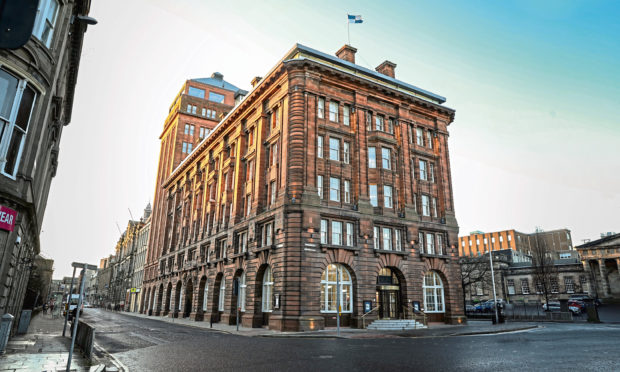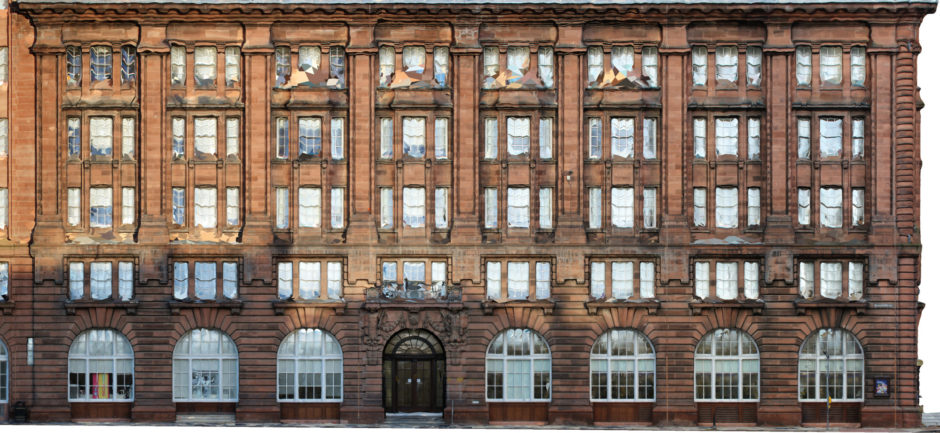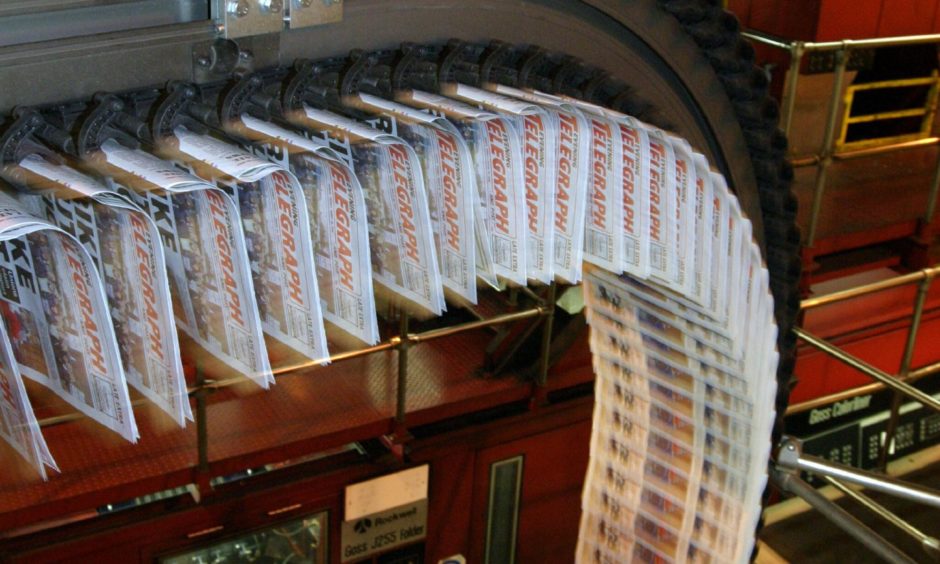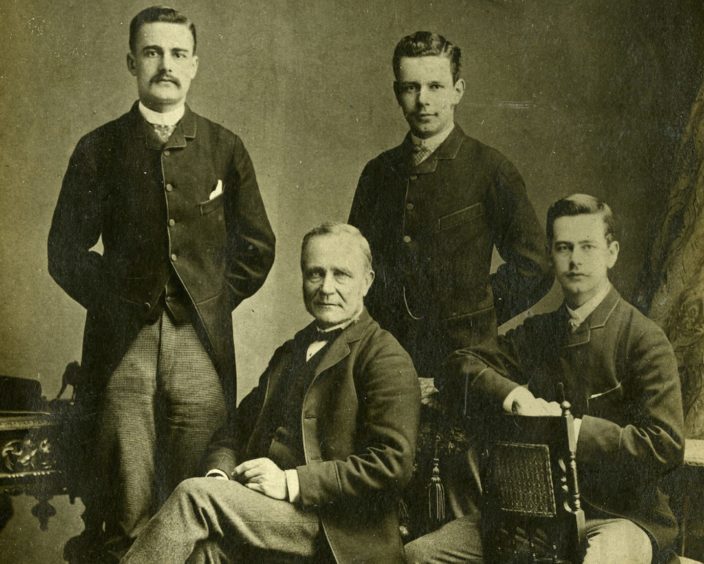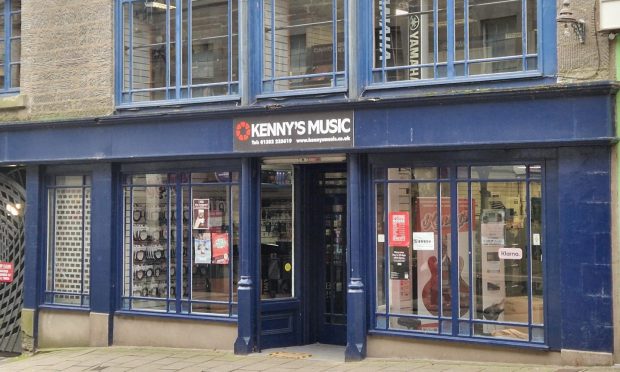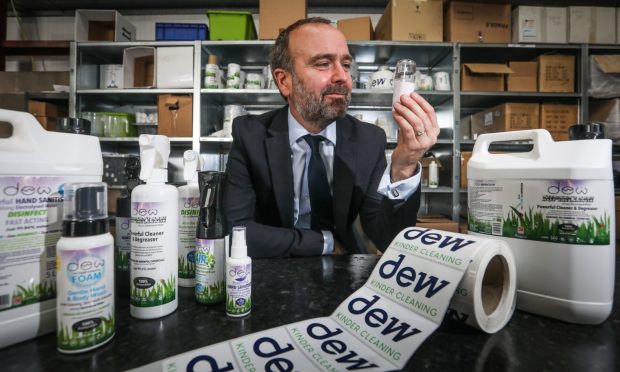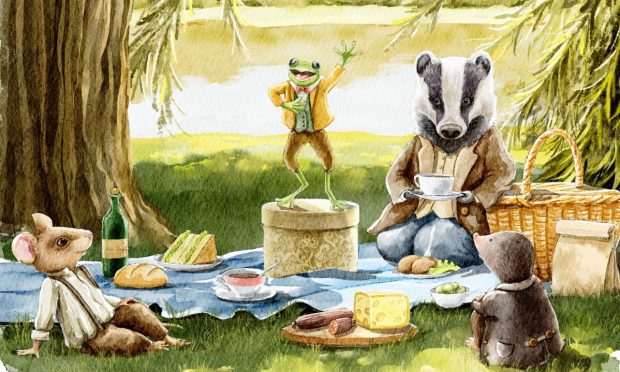Media group DC Thomson said it was positioning itself for growth despite a multi-million pound loss last year.
Headquartered in Dundee, the family-firm publishes newspapers and magazines and has diversified into new media, digital technology, retail and television interests.
Newly filed accounts for the year ending March 31 2020, show the company has been significantly impacted by Covid-19.
A pre-tax loss of £179.6 million compared to a pre-tax profit of £21.1m in 2019.
Revenues for the year were £198.5m, a 1.6% fall from £201.8m in 2019.
Stock market rebound
Chairman Christopher Thomson said the loss was partly due to a £81m fall in the value of the company’s investments.
He noted the stock market has bounced back strongly since the end of March. By the end of September the firm’s portfolio had increased in value by £210m.
The deficit also reflects a £79.5m in write-down of other company assets and DC Thomson exiting its gifting business Wild + Wolf in June.
The chairman said: “Results for the year to March 31 were of course heavily impacted by the pandemic.
“As a consequence, we took into that year cautious write-downs of the carrying value of certain assets, especially those that were connected to advertising.
“Our accounts were naturally also affected by movements in markets as lockdown took place back in March 2020.
“However, there has been substantially more than a full recovery and financial assets and the pension fund are significantly up on the lower point of 31 March 2020. The pension fund remains very strong.
“Although there has been damage to some past value, we are resilient.”
‘Intense pressure’ in media sector
DC Thomson owns newspapers The Courier and Evening Telegraph in Dundee, The Press and Journal and The Evening Express in Aberdeen and The Sunday Post.
The company said its magazine brands Puzzler, The People’s Friend, My Weekly and the Beano had outperformed the market.
Other interests include genealogy business Find My Past, cloud computing specialist Brightsolid, radio stations and contract printing.
Mr Thomson said its brands and assets had shown “exceptional resilience” while the media industry had been under “intense pressure”.
Transformational plans for future
He said there was a focus on building a sustainable business for the future.
“In a long-term private business, there is a balance between strength from our heritage and strength from innovation,” the chairman added.
“We are transforming to manage the business for growth. We intend to do that principally with organic growth in the digital subscriber and membership space.
“The pandemic has, in many ways, accelerated changes and improvements in the way we operate that were already planned.
“We continue to employ over 1,500 people, both locally and nationally, and support the communities we serve. We aim to be a major employer for generations to come.
“Our intention is to come out of this stronger and we look to the future, not to the past, as we grow and transform our important trading business.
“We have every confidence in our talent and in the direction of the business to ensure a sustainable, profitable future.”
Long history of publishing
DC Thomson has its origins in the entrepreneurship of William Thomson in the early 19th century when the firm’s main business was in shipping.
During the mid-19th century, the Thomson family invested in publishing, taking an interest in the Dundee Courier and buying it in 1886.
At that stage there were two major publishing houses in Dundee. The other was run by Sir John Leng.
In 1905, the Thomson and Leng firms merged under the leadership of William Thomson’s son David Couper (D.C.) Thomson.
Throughout the course of the 20th century, DC Thomson became one of the UK’s leading publishers.
The company currently has four directors, Christopher HW Thomson, Richard Hall, Andrew F Thomson and David Thomson, all of whom are descendants of the founder.
Other members of the Thomson family continue to work within the business.
